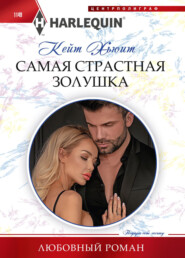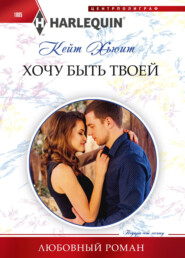По всем вопросам обращайтесь на: info@litportal.ru
(©) 2003-2025.
✖
The Sheikh's Love-Child
Автор
Год написания книги
2018
Настройки чтения
Размер шрифта
Высота строк
Поля
She didn’t want him to; that wasn’t the point. The point, as she’d explained to her mother and to Eric—who’d both disapproved of her intention to come to Biryal—was for Khaled to know the truth. He had a right, just as she felt she’d had a right to a goodbye all those years ago. And now she had a right as well: to finish with Khaled once and for all. To know it was finished, to feel it. To be the one to walk away.
Turning from her own determined reflection, Lucy left her bedroom in search of the others.
Biryal’s new stadium, completed only a few months before, was an impressive structure on the other side of Lahji with a breathtaking view of a glittering ocean. All modern chrome and glass, it was built in the shape of an ellipse, so the ceiling appeared to hover over the pitch.
As Lucy arranged her equipment in the team’s rooms, she saw the stadium was outfitted with every necessity and luxury. Khaled clearly had spared no expense.
‘It seats twenty thousand,’ Yusef, one of the staff who had shown them to the rooms, had explained proudly. Considering Biryal’s population was only a few hundred thousand, it seemed excessive to Lucy. The building also jarred with Lahji’s far humbler dwellings. Yet she had to admit the architect had designed it well; despite its modernity, it looked as if it belonged on the rocky outcropping facing the sea, as if about to take flight.
Lucy was used to before-game energy and tension, although the match with Biryal did not have the high stakes most matches did. There was something else humming through the room, Lucy thought, and she knew what it was.
Memory.
At least a third of the team had played with Khaled, seen him fall on the pitch. Had felt the betrayal of his abrupt and unexplained departure. The reason Brian Abingdon had agreed to this match at all, Lucy suspected, was because of Khaled and the victories he had brought to England’s team in his few years as its outside half.
As the match was about to start, Lucy found herself scanning the crowds for a glimpse of Khaled. Her eyes found him easily in the royal box near the centre of the stadium. As usual, he looked grim, forbidding.
The match started without her realising, and almost reluctantly she turned to watch the play. After a few moments a man came to stand next to her, and out of the corner of her eye she saw it was Yusef.
‘The stadium’s full,’ she remarked, half-surprised that twenty-thousand Biryalis had come to watch.
‘This match is very important to us,’ Yusef replied with a faint smile. ‘Although it’s small to you, this is one of Biryal’s first matches. The team was only organised two years ago, you know.’
‘Really?’ Lucy hadn’t realised the team was quite so recent a creation, although perhaps she should have. Biryal was a small country, and there was no reason for it to possess a national rugby team.
No reason save for Khaled.
‘Khaled began it,’ Yusef explained, answering the half-formed question in Lucy’s mind. ‘When he returned from England. Since he couldn’t play himself, he did the next best thing.’
‘He couldn’t play himself?’ Lucy repeated, a bit too sharply. Yusef glanced at her in surprise.
‘Because of his injury.’
‘He’d always had trouble with his knee,’ Lucy protested, and Yusef was silent, his expression turning guarded and wary.
‘Indeed. Prince Khaled arranged for the stadium to be built as well. He hired one of the best architects, helped with the design himself.’
Lucy knew there was no point in pressing Yusef for more information about Khaled’s injury, even though her mind spun with unanswered questions and doubts. She smiled and tried to inject some enthusiasm into her voice. ‘It was clearly an ambitious project, especially when Biryal could benefit from so much.’
Yusef gave a little laugh, understanding her all too well. ‘We are a poor country in the terms you understand,’ he agreed. ‘And Prince Khaled realises this. He understands our nationalistic pride, and he built us something we could show to the world. You might think we’d benefit from more hospitals or schools, but there are other ways of helping a country, a people. Of giving them respect. Prince Khaled knows this.’
He smiled, and Lucy found herself flushing. Had she sounded so snobbish, so judgemental? ‘Besides,’ Yusef continued, ‘Rugby will bring with it more tourism, and with that a better and stronger economy. Prince Khaled has taken this all into consideration. He will be a good—a great—king one day.’
A king. King Khaled. The thought was so strange, so impossible. The Khaled she’d known would never have been a king. She’d barely been aware he was a prince. He’d simply been Khaled—fun, sexy, charming Khaled. Hers, for a short time.
Except, of course, he really hadn’t been.
Lucy glanced up at him and saw Khaled lean forward, one white-knuckled hand clasped in the other, watching the match with an intent ferocity. She wondered what had brought him to this moment, what had made him work so hard. What made him look so…unhappy.
Since he couldn’t play himself… Was that really the truth? Was that the reason he’d left so suddenly? And did it really make any difference? Lucy wondered sadly. If he’d loved her, as she’d loved him—had thought she’d loved him—he would have shared such important, life-changing information with her. He would have wanted her to be there.
She’d tried to be there, God knew. She had been turned away from the hospital when a nurse had flatly explained that Prince Khaled had requested no visitors. No visitors at all.
A cry rose from the crowd, and Lucy saw that Biryal had scored. She narrowed her eyes, noticing that Damien Russell, the team’s open-side flanker, was limping a bit, and went to get one of her ice packs.
The next hour was spent fulfilling her duties as team physio, checking injuries, watching for muscle strain, fetching the tools of her trade. She kept her mind purposely blank, refused to think of Khaled at all, even though her body hummed with awareness, ached with tension.
The match seemed to go on for ever. For a fledgling team, Biryal was surprisingly good—thanks to Khaled and his insistence on one of the best coaches in the game, Lucy suspected. She also suspected the England team wasn’t trying as hard as it might, wanting to save its energy and stamina for the more important matches coming up in the Six Nations.
And then finally it was over. John Russell, England’s outside half, spun away from an opposing player in a daring move that sent a ripple of awareness through the stadium like an electric current. When he went on to score, the stadium erupted in cheers.
For a moment, Lucy was startled; Biryal had lost, yet they were cheering.
‘Close match,’ Yusef murmured. ‘And, as you just saw, won by one of Prince Khaled’s signature moves.’
Of course. Lucy had recognised that half-spin; now she knew why. Khaled had invented it. How many times had he been photographed for the press in that almost graceful pirouette?
And now England had taken that from him too.
Lucy didn’t know why that thought slipped into her mind, or why she suddenly felt sad. She didn’t know what Khaled felt, although she could see him smiling now as he walked stiffly towards the pitch to shake hands with the players.
He was limping. The thought sent a ripple of shocked awareness through her. Khaled was limping, although he was trying not to show it. Just as Yusef had intimated, his old injury must have been a good deal worse than anyone had thought.
Than she had thought—and she had been his physiotherapist! Shouldn’t she have known? Shouldn’t she have guessed?
Shouldn’t she have understood?
Lucy shook her head, wanting to stem the sudden, overwhelming tide of questions and doubts that flooded through her. She didn’t want to have sympathy for Khaled, not for any reason. It would only make this trip and everything else harder.
The stadium was in its usual post-match chaos, and numbly Lucy went about her duties, checking on players, arranging care.
At some point Aimee told her there was another party tonight at the palace, a big celebration—for, even though Biryal had lost, they’d played such a good match that it felt like a victory.
Lucy listened, nodded, smiled. Somehow she got through the rest of the afternoon, though both her body and mind ached. She’d never wanted to talk to Khaled more, even as she dreaded it.
Yet he was as inaccessible as he’d been since she’d arrived in his home country, and she wondered if he would ever grant her the opportunity of a moment alone—or if she would have to make one.
From the top of the foyer’s staircase Lucy heard the drifting sound of a classical quartet; there would be no discordant music tonight. Tonight, she saw as she came down the stairs, was a show of wealth as well as a celebration. White-jacketed waiters circulated through the palace’s reception rooms with trays of champagne and hors d’oeuvres, and King Ahmed stood by the front doors that were thrown open to the warm night air, dressed Western-style in a tuxedo.
Lucy ran her palms down the sides of her evening dress, an artfully draped halter-neck gown in cream satin. It was the most formal piece of clothing she owned, as well as the sexiest, even though the draped fabric didn’t cling or reveal, simply hinted. With her hair pulled back in a slick chignon, she felt glamorous—as well as nervous.
Judging from the crowds below her, she wasn’t overdressed; Aimee’s pink-ruffled concoction made her own gown look positively plain. But she felt it. She felt like she was parading herself for Khaled, never mind every other man who turned with an admiring glance as she came into the foyer.
A few glasses of champagne later, her bubbling nerves had begun to calm. Lucy circulated through the crowd, smiling, chatting, laughing, looking.
Where was Khaled? She wanted to see him now, she wanted that conversation. Fortified with a bit of Dutch courage, she was ready, and she simply wanted it to be over.
Yet he was avoiding her, he must be, for as she wandered through the crowded reception rooms she couldn’t find him anywhere.

















